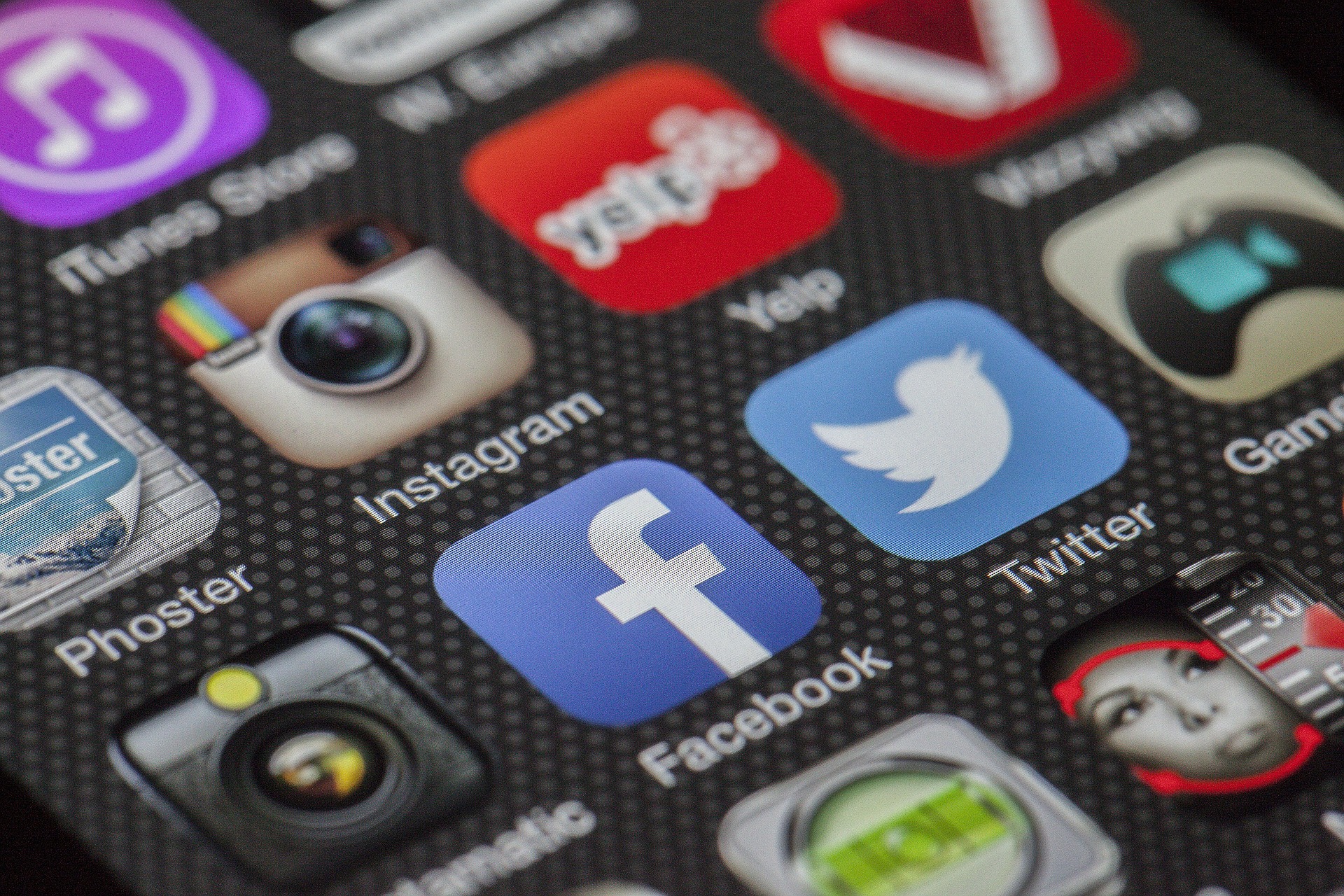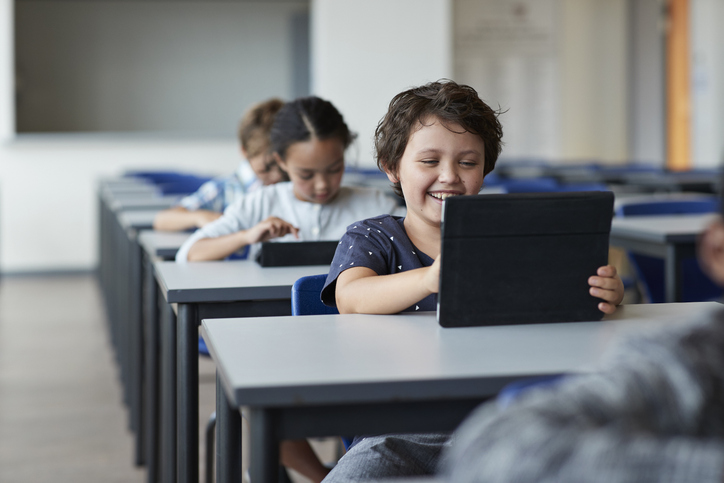Are Phones Good for Students?
Students are using phones and screens more than ever before and, fortunately, the mental health impact of the devices may be exaggerated.

Tools and ideas to transform education. Sign up below.
You are now subscribed
Your newsletter sign-up was successful
How phones are used in education is a divisive topic. Since the pandemic began there has been an effort to ensure every student has a device capable of accessing the internet, and education apps have become more common. Screen use increased by 17 percent among those 8-18 years old between 2019 and 2021, according to a survey by Common Sense Media.
Meanwhile, some schools have banned the use of phones altogether, often citing the distractions caused and the perceived links to lack of sleep, depression, and other negative mental health outcomes.
However, the extent to which phones impact the mental health of students and help or hinder their education remains unclear.
Phones and Mental Health
For a 2020 study, Candice Odgers, a University of California, Irvine professor of psychological science, and a colleague analyzed previous studies that examined the link between phone and technology use and anxiety, depression, and overall mental health.
“When you do that, you find that most of the studies find no association,” Odgers says. “The associations that are found are really small and they're a mix of positive and negative associations.”
Even those small associations that are found are likely due to confounding factors, Odgers says. In a previous study, Odgers and colleagues followed 400 teens intensively over a four-week period, tracking their tech use and emotional state. “Other studies compare a kid who has one hour of screen time a day versus a kid who has seven, and those are different kids with different families,” Odgers says. “We looked at the same kid over time and on days when this particular kid is using more screens, or more time on social media, or more time on digital tech for school, do we see differences in how they usually are in terms of their symptoms? We found virtually no associations. And when we did find associations, it was in the opposite direction.”
On days students used their devices more, they reported better well-being and less depression.
Tools and ideas to transform education. Sign up below.
Odgers says there is a disconnect between the popular perception of phones and the role the devices actually play in the increasing mental health problems we see in young people. “We cautioned against this belief that if we just shut off the phones, it will solve these problems that have been long-standing and are likely rooted in much bigger and systemic issues than in technology,” she says. “That always gets us put in the pro-tech camp, which we're not. We're pro kids and pro evidence.”
Phones and Learning
The discussion about device usage and mental health in young people often takes center stage when phones are banned within school districts. However, the mental health impact of phones should be a separate discussion from whether kids should have access to theirs during class, Odgers says. “That’s up to the teacher and the context,” she says.
Another separate issue is how phones and other devices affect education. A 2020 literature review of research examining the impact of phones on learning found frequent cellphone use decreased academic achievement, but the study authors cautioned this association did not equal causation. More research is needed for any sort of definitive answer.
Consequently, absent clear research findings, it’s up to school leaders and parents to develop their own rules and guidelines for phone use.
Chad A. Rose, director of Mizzou Ed Bully Prevention Lab at the University of Missouri, who studies cyberbullying, understands both sides of the debate around phones in schools, but thinks bans on phone use are unrealistic and unproductive. “I tend to fall on the side of smartphones are a useful tool; social media is a useful tool, and we just have to teach kids how to use them appropriately,” he says.
Using Phones in Schools Effectively
Regardless of the impact on mental health or role in educational efficiency, the discussion around phones may need to evolve. “It's a really unrealistic expectation that kids will shut off their phones,” Odgers says. “So the smart and progressive way to look at this is to engage with young people where they live – and spend the majority of their time in some cases – and teach them how to do that responsibly.”
However, this should not solely be the responsibility of parents and teachers as understanding how data is stored as well as other privacy concerns and risks, is hugely complex and ever-changing. “Social media companies and big platforms need to step into the public and educational square. They cannot offload all of this responsibility,” Odgers says.
Rose also believes the conversation around these devices needs to evolve from whether phones should be used to how they can best be used. He advocates for earlier and more robust digital citizenship education in schools that teaches about the permanence and potential consequences of what is posted to social media and written in apps.
Rose also believes that distinctions should be made between the types of activities students engage in on their devices. With his daughter, Rose blocks out time away from the phone but also permits and encourages her to incorporate phone use into diverse activities.
“So there's a time for social media, but there's also a time for reading, and if you want to read on your device, cool,” he says. “There's a time for doing something creative. If you want to do something creative on your device, great. Then we have time blocked out for physical activity.”
Ultimately, for Rose and many others who study technology and its impact on education and children, it comes down to realizing how important these devices are in children’s social lives currently and how important they’ll be in their future careers. “Access to technology, and knowing how to use technology appropriately, is a benefit to everyone,” he says.
Erik Ofgang is a Tech & Learning contributor. A journalist, author and educator, his work has appeared in The New York Times, the Washington Post, the Smithsonian, The Atlantic, and Associated Press. He currently teaches at Western Connecticut State University’s MFA program. While a staff writer at Connecticut Magazine he won a Society of Professional Journalism Award for his education reporting. He is interested in how humans learn and how technology can make that more effective.

